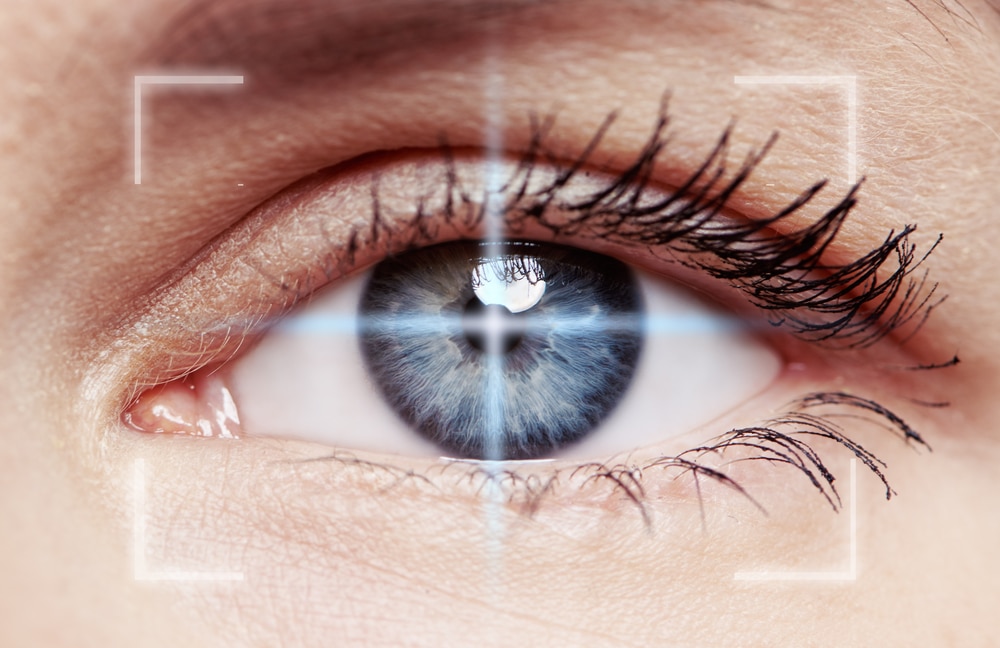Medically Reviewed by: Paul J. Stewart M.D.
Retina Surgery Options
If you think you’re suffering from a detached retina, it’s important to seek out professional help so you can start the retina surgery recovery process as soon as possible. With retina tears, you may notice blurry vision, floaters, or flashes at first, and it may just seem like your vision is getting worse. But if a detachment is left untreated, you could end up with permanent vision loss.
Treatment options for a detached retina
Before we cover retina surgery recovery tips, let’s go over the different types of treatment options for a detached retina.
Cryopexy or laser surgery
With this particular retina detachment treatment option, a doctor uses a probe or laser to seal any retina tears. This option can be done in-office in 30 minutes or less. Your eye will be numbed prior to the procedure, and you should feel little-to-no discomfort throughout the entire process.
Pneumatic retinopexy
Pneumatic retinopexy involves laser or cryotherapy, a gas bubble, and the removal of fluid. The purpose of the gas bubble is to push the retina back; however, the bubble will remain in your eye post-surgery. Over the next few days, it is important that you refrain from exertion and that you keep your head in the recommended position. The bubble will gradually disappear.
Scleral buckle
This treatment option is for more severe cases and requires the use of general anesthesia. Keep in mind, however, recovery time is still within the 2-4 week timeline. With this procedure, a band will be placed around your sclera and remain there permanently. Cryotherapy or a laser will also be used to patch up any tears.
Vitrectomy
Vitrectomy is for more serious retinal detachments. With this treatment option, the removal of vitreous gel is required. After removal occurs, a combination of a gas bubble and cryotherapy or laser is used. You can be numbed prior to the procedure, or you can opt for general anesthesia.
Retina surgery recovery tips
Again, retina surgery recovery tips vary depending on the severity of your retina detachment, as well as the treatment option you and your doctor decide to undergo. Your surgical counselor will review your recovery tips with you and let you know what suggestions should work best for your time post-op. Here are some general tips to guide you during your recovery process.
- Avoid intense or vigorous activities. Give your eyeball the chance to heal before you start jostling it around again. And remember, these activities can expand to include light exercising and even lifting heavy items.
- Take some time off work. How long does it take to recover from retina surgery? Typically two to four weeks. For that reason, we recommend asking between two to four weeks off of work.
- Avoid driving. Again, this time will vary, and it could only be a day or two. But, this really depends on how your vision is improving and whether or not your doctor recommends it.
- Take any medications and eye drops as prescribed. It is likely that you will be required to take eye drops for at least a month after your procedure. If you have any lingering pain or discomfort, make sure you speak with your doctor before taking any over-the-counter pain meds.
- Take precautions when showering or washing your face. Avoid getting any liquids near your eye and avoid swimming.
- Wear eye protection when you’re outside to protect your eyes from the sun.
- Pay careful attention to how you sleep and hold your head. This is especially true if there was a gas bubble placed in your eye, Your doctor will help you understand how to sleep after retinal detachment surgery. Because of the gas bubble, you’ll also want to avoid airplanes.
- Schedule and attend all follow-up appointments with your doctor. Make sure you maintain open communication and let them know if you’re experiencing anything uncomfortable during your recovery process.
When to contact a doctor during the retina surgery recovery process
While most retina surgery recovery processes go smoothly, there are some situations that could indicate a potential problem. Contact your doctor if you experience any of the following issues during your retina surgery recovery process:
- Eye pain that is getting worse
- Decrease in vision
- Swelling
- Discharge
- Redness
- Fever
- Any sudden changes in your overall health
Eye Center of Texas is here for you before, during, and after your retina surgery recovery
At Eye Center of Texas, we have experience helping the people of Houston successfully treat and recover from a wide variety of eye health issues and diseases, including retinal tears and detachment.
From LASIK surgery to retina detachment, we are one of Houston’s leading ophthalmological practices. We are here to answer any questions you may have about vision recovery after retinal detachment surgery, what to expect after retinal tear surgery in general, and more.
Give us a call today at 713-797-1010 or fill out our online form to request an appointment with our team.
Related Articles
Financing Options Available
Apply today to find a financing option that meets your needs.
Our Locations
Houston/Bellaire
6565 W. Loop S., Suite 650Bellaire, TX 77401
Medical Office:
713-797-1010
Medical Fax:
713-357-7276
LASIK/Near Vision:
Office: 713-395-1515
Fax: 713-357-7278
Pasadena
4415 Crenshaw RoadPasadena, TX 77504
Medical Office:
281-977-8800
Medical Fax:
281-977-8877
Sugar Land
15200 S.W. Freeway, Suite 130Sugar Land, TX 77478
Medical Office:
281-277-1010
Medical Fax:
281-277-4504
Clear Lake
455 E. Medical Center Blvd., Suite 110Webster, TX 77598
Medical Office:
281-332-1397
Medical Fax:
281-282-9152
Katy
Greenhouse Medical Plaza2051 Greenhouse Road, Suite 110
Houston, TX 77084
Medical Office:
346-547-7070
Medical Fax:
281-214-2971
The Woodlands/Conroe
100 Medical Center Blvd., Suite 118Conroe, TX 77304
Medical Office:
936-647-1610
Medical Fax:
936-647-1620


